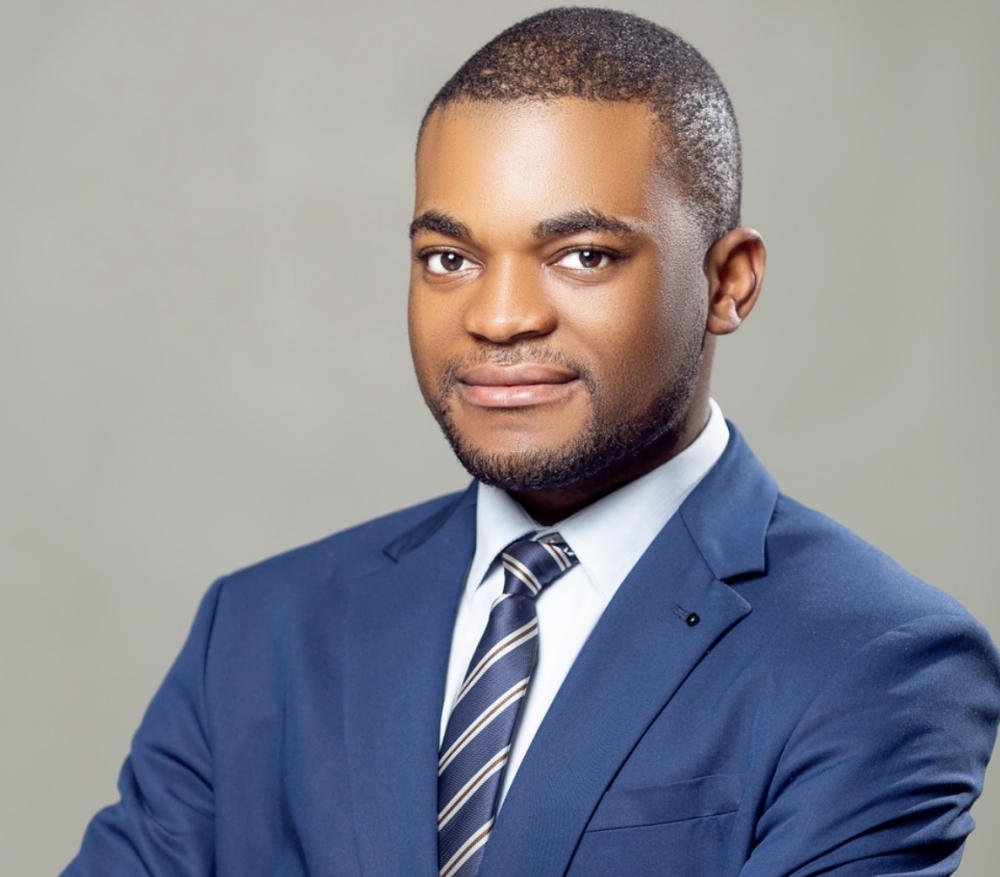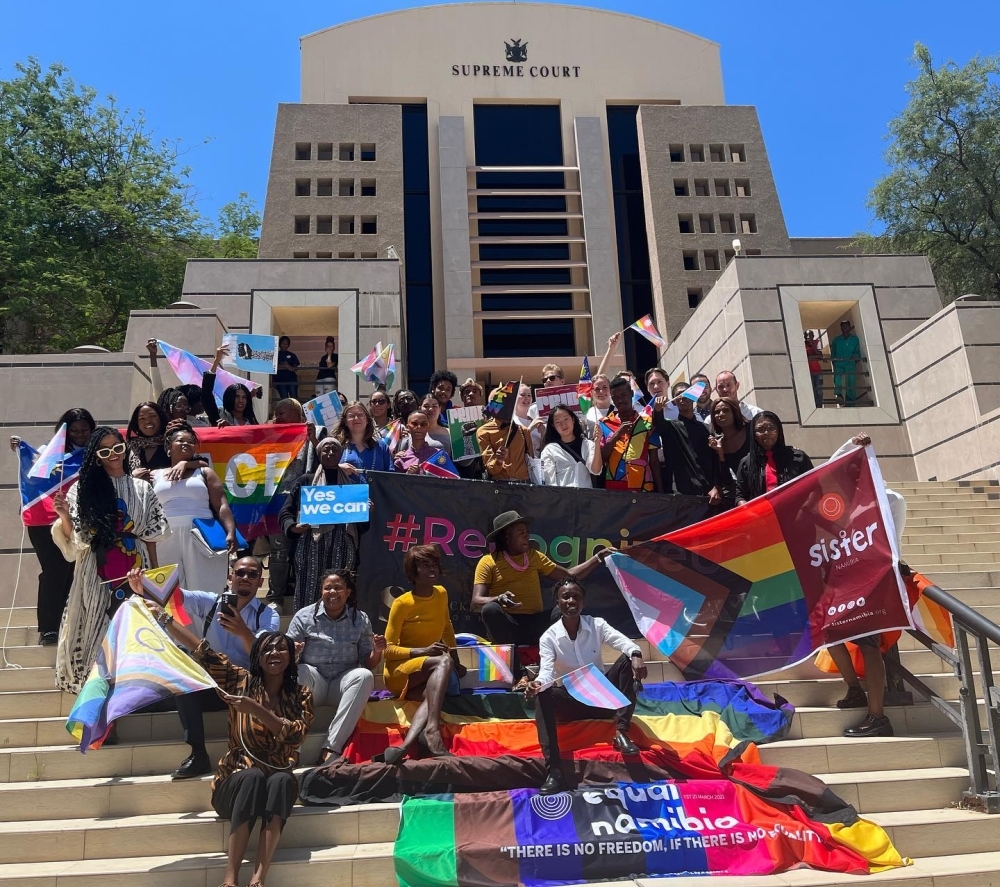Every Namibian is equal before the law
The Supreme Court’s ruling on same-sex marriage is an affirmation that all Namibians are equal before the law. Namibia shines this week, blessed with the sacrifice of resistors and dreamers who wanted to achieve a Namibia that works for every Namibian.
It is important to put into proper context President Hage Geingob’s call for an inclusive Namibian House. His open-mindedness and willingness to build a nation that embraces every single Namibian are testaments to the progress we are witnessing in Namibia today. Great leaders protect those who are vulnerable and seek justice on their behalf. By calling for an inclusive society, our president has done just that.
President Hage Geingob's administration laid the groundwork for ensuring that the basic liberties inherent to everyone are upheld and protected. This is shown in how the president, through his administration, made several appointments of different people along different lines. For instance, he appointed the deputy minister of health, although she was from a different political party. The president’s leadership is centred on equal rights for all, regardless of race, gender, sex, nationality, ethnicity, language, religion, or any other status.
Repealing discriminatory stances
The verdict is timely as it comes at a time when the rights of lesbian, gay, bisexual, transgender, intersex, or questioning (LGBTIQ) people are under threat in Namibia.
And there have been long-standing allegations of exploitation of LGBTIQ individuals. The culture of homophobia in Namibia has made it difficult for members of the LGBTIQ communities to live full lives. The Namibian constitution provides everyone with the right to find a family. As a state party to core regional and international human rights instruments, Namibia is obligated to protect, respect, and guarantee equal rights for all.
It also has reporting obligations under the African Union and mechanisms of the Human Rights Council, including the Universal Periodic Review (UPR), where it has to report on the positive steps that it has undertaken to improve the human rights situation in the country.
It is also important to highlight that justice minister Yvonne Dausab has been at the helm of repealing discriminatory laws that continue to put more people at risk.
For far too long, Namibians felt like justice was slipping from their reach; the rights and dignity of everyday people have been trampled; the LGBTIQ community has been targeted with bigotry and hate; and they often felt powerless to speak up. Last week, the Supreme Court gave back power to the Namibian people.
The Namibian justice system sets itself apart for the people and sets precedence for the African continent, a continent that is still fighting to discontinue cultural practices that infringe upon the rights of women and minorities.
I believe in the rule of law and democracy, and I expect that all Namibians should be treated equally by government.
The law is the greatest equaliser, the greatest pillar of our democracy, and the greatest force against inequality and entrenchment. The historic and progressive judgment of the Supreme Court is something that every Namibian should be proud of – it should inspire the spirit of inclusion and tolerance in our society. We should never be patient in the fight for equality.
It is important to put into proper context President Hage Geingob’s call for an inclusive Namibian House. His open-mindedness and willingness to build a nation that embraces every single Namibian are testaments to the progress we are witnessing in Namibia today. Great leaders protect those who are vulnerable and seek justice on their behalf. By calling for an inclusive society, our president has done just that.
President Hage Geingob's administration laid the groundwork for ensuring that the basic liberties inherent to everyone are upheld and protected. This is shown in how the president, through his administration, made several appointments of different people along different lines. For instance, he appointed the deputy minister of health, although she was from a different political party. The president’s leadership is centred on equal rights for all, regardless of race, gender, sex, nationality, ethnicity, language, religion, or any other status.
Repealing discriminatory stances
The verdict is timely as it comes at a time when the rights of lesbian, gay, bisexual, transgender, intersex, or questioning (LGBTIQ) people are under threat in Namibia.
And there have been long-standing allegations of exploitation of LGBTIQ individuals. The culture of homophobia in Namibia has made it difficult for members of the LGBTIQ communities to live full lives. The Namibian constitution provides everyone with the right to find a family. As a state party to core regional and international human rights instruments, Namibia is obligated to protect, respect, and guarantee equal rights for all.
It also has reporting obligations under the African Union and mechanisms of the Human Rights Council, including the Universal Periodic Review (UPR), where it has to report on the positive steps that it has undertaken to improve the human rights situation in the country.
It is also important to highlight that justice minister Yvonne Dausab has been at the helm of repealing discriminatory laws that continue to put more people at risk.
For far too long, Namibians felt like justice was slipping from their reach; the rights and dignity of everyday people have been trampled; the LGBTIQ community has been targeted with bigotry and hate; and they often felt powerless to speak up. Last week, the Supreme Court gave back power to the Namibian people.
The Namibian justice system sets itself apart for the people and sets precedence for the African continent, a continent that is still fighting to discontinue cultural practices that infringe upon the rights of women and minorities.
I believe in the rule of law and democracy, and I expect that all Namibians should be treated equally by government.
The law is the greatest equaliser, the greatest pillar of our democracy, and the greatest force against inequality and entrenchment. The historic and progressive judgment of the Supreme Court is something that every Namibian should be proud of – it should inspire the spirit of inclusion and tolerance in our society. We should never be patient in the fight for equality.






Comments
Namibian Sun
No comments have been left on this article